- The Forest School
- Practice
Practice
As a hub for all things forestry, The Forest School (TFS) students, alumni, and faculty are having an impact across the U.S. and globally.
On This Page
Impact Through Practice
Environmental Leadership Training Initiative
5,340
Participants
ELTI has trained over 5,000 participants in tropical forest restoration across the globe.
The Forests Dialogue
75+
Dialogues
The Forests Dialogue has developed 20 different initiatives, convened 75+ dialogues, and engaged more than 3,000 participants since 2000.
Urban Resources Initiative
197
Bioswales
Since 2013, URI teams have built almost 200 bioswales in New Haven’s downtown and Hill neighborhood and completed maintenance on an additional 93 bioswales.
Yale Forests
10,777
Acres of Forests
Sustainably managed, Yale Forests comprise 10,777 acres of forestland in Connecticut, New Hampshire, and Vermont and are an extensive resource for researchers and students as well as local landowners and communities
Tropical Resources Institute
864
Fellows Funded
Since 1983, TRI has funded 864 endowed fellowships for interdisciplinary, applied environmental research in the tropics in over 82 countries.
Urban Resources Initiative
11,329
Street Trees Planted
URI has planted 11,329 trees in New Haven through its GreenSkills program, Greenspace volunteers, and YSE volunteers.
Alumni Practitioners
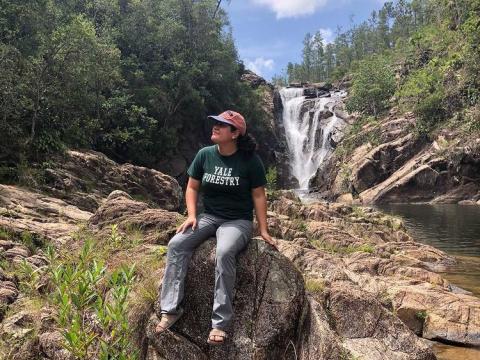
Restoring Belize’s Landscapes
Ki’ila Salas ’19 MF returned to her home country of Belize to participate in its first landscape restoration initiative, helping to develop its National Landscape Restoration Strategy for the Belize Forest Department. The project is part of the country’s national restoration commitment to the Bonn Challenge, which has a global goal to bring 350 million hectares of degraded and deforested landscapes into restoration by 2030.
“The project gave me great pride and joy in guiding the process of how the restoration strategies should be accomplished,” Salas says.
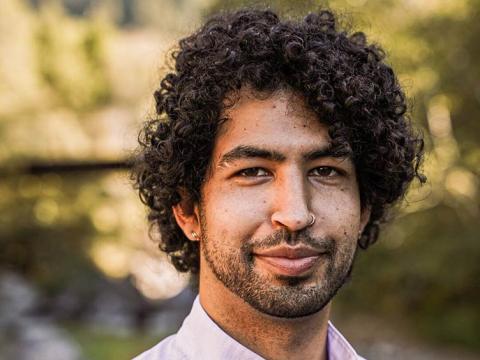
Indigenous Restoration Approaches
As co-founder and executive director of Shelterwood, Nikola Alexandre ’18 MF, MBA leads the restoration of a 900-acre forest in Northern California with Black and Indigenous community approaches to land care.
His work creates partnerships with and between traditional conservation NGOs, Indigenous and racial justice organizations, government agencies, and private landowners to model socially just and ecologically sound pathways to protecting and restoring nature. In 2020, Alexandre was named a Pritzker Emerging Environmental Genius Award candidate for his work.
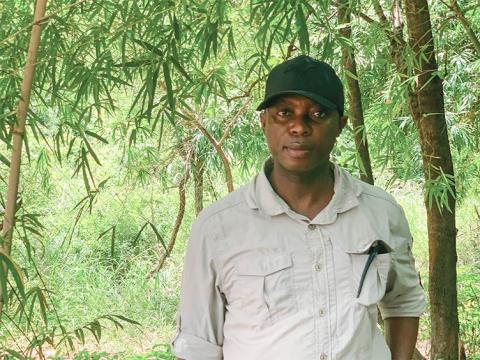
Rehabilitating Ghana’s Forests
After a decade as director of operations for Ghana’s Forestry Commission, overseeing the country’s commercial forest plantation development and land restoration, Hugh Brown ’10 MF was named executive director of the Commission's Forest Services Division in 2022.
The Commission has begun the restoration of more than 450,000 hectares of degraded forests and planted millions of new trees under Brown's leadership — part of a major reforestation initiative by the Ghanaian government to contribute to global climate action.
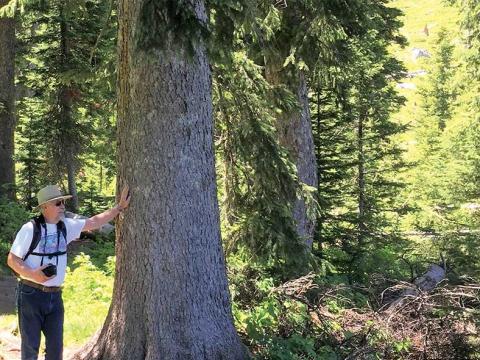
Tracking Forest Inventory
Richard Guldin ’76 MFS, ’79 PhD has helped reinvent the U.S. Forest Service’s Forest Inventory and Analysis (FIA) program by integrating new sampling designs, field procedures, and innovative software to create an annual inventory that has become a global model. His work earned him the Society of American Foresters’ Sir William Schlich Award.
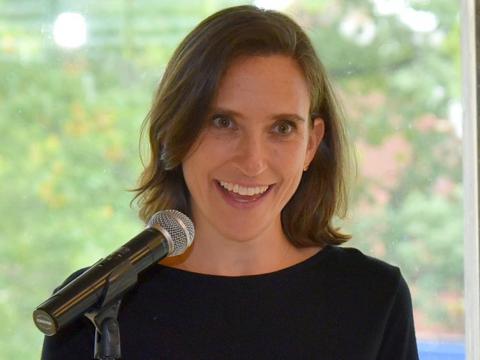
Preserving and Restoring Urban Forests
Sarah Charlop-Powers ’09 MEM is helping to preserve and restore critical urban forests in New York City and beyond. In 2012, she helped launch the Natural Areas Conservancy (NAC), which has partnered with NYC Parks to create the innovative Forest Management Framework that conducted field-based ecological assessments in the city. Its efforts recently expanded with a national survey distributed to 125 cities and organizations across the U.S. aimed at gaining a better understanding of how urban forests and natural areas are being managed.
Focus on Centers, Programs, and Initiatives
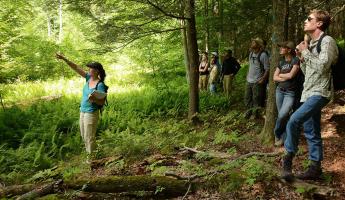
Yale Forests
Our homes away from home, the Yale Forests manage 10,777 acres of forestland that provide educational, research, and professional opportunities to the Yale community and beyond.
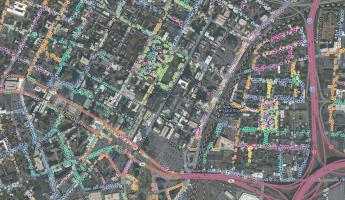
Urban Resources Initiative
Making New Haven cleaner and greener, URI works with local partners to plant trees, restore community green spaces, and build bioswales to filter stormwater runoff.
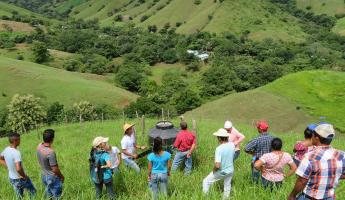
Environmental Leadership Training Initiative (ELTI)
In critical natural landscapes rich in biodiversity, ELTI empowers local leaders to design and implement land use practices and initiatives that protect tropical forests and the livelihoods of local landowners and their communities.
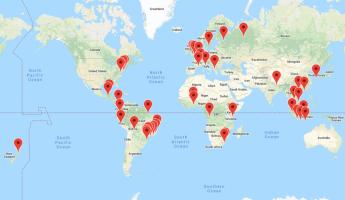
The Forests Dialogue (TFD)
The Forests Dialogue provides a platform for ongoing, multi-stakeholder conversations focused on collaborative solutions to challenges in achieving sustainable forest management and forest conservation.
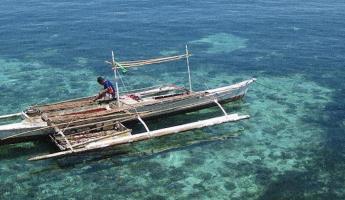
Tropical Resources Institute (TRI)
The Tropical Resources Institute supports student research and on-campus programming aimed at solutions to complex challenges within the conservation and management of tropical environments.
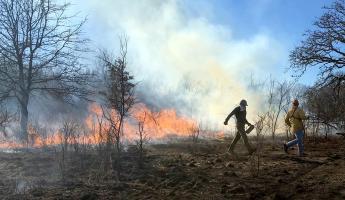
Yale Forest Forum (YFF)
The hub of communications and engagement for The Forest School, the Yale Forest Forum brings together a diverse group of leaders in forestry and forest policy through regular events and programs.
Hixon Center for Urban Ecology
The Hixon Center provides an interdisciplinary forum for research, teaching, and outreach that improve our understanding and management of urban environmental systems.
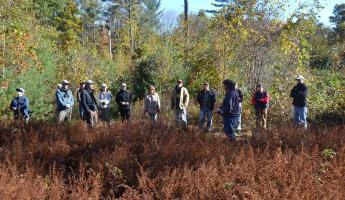
Quiet Corner Initiative (QCI)
Partnering with private landowners, natural resource managers, and forest industry professionals, the Quiet Corner Initiative provides students with unique educational and research opportunities in forestry and land management.